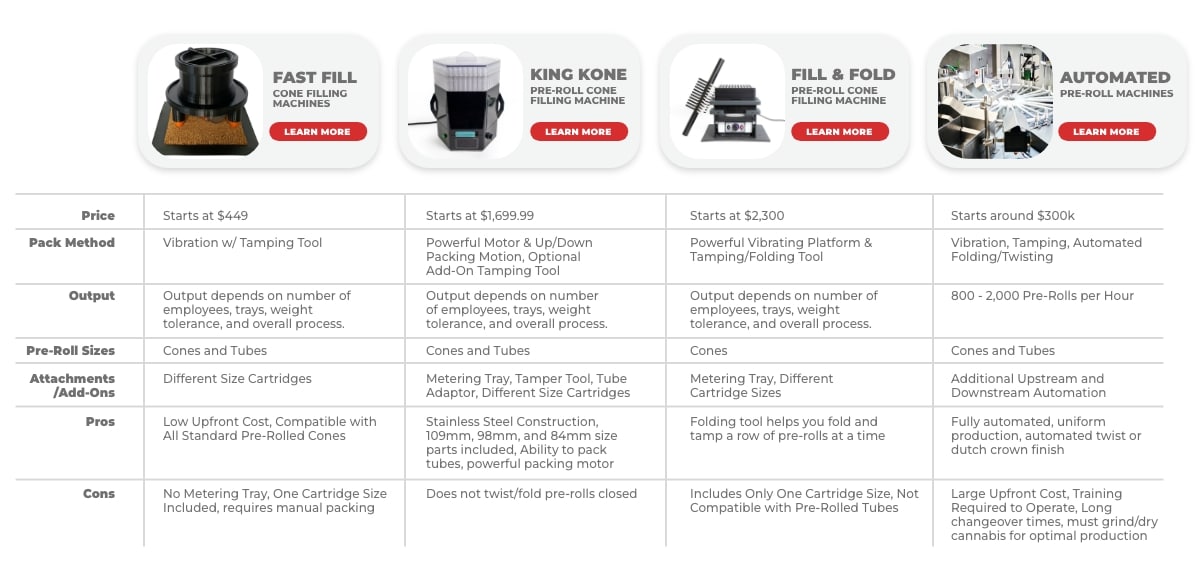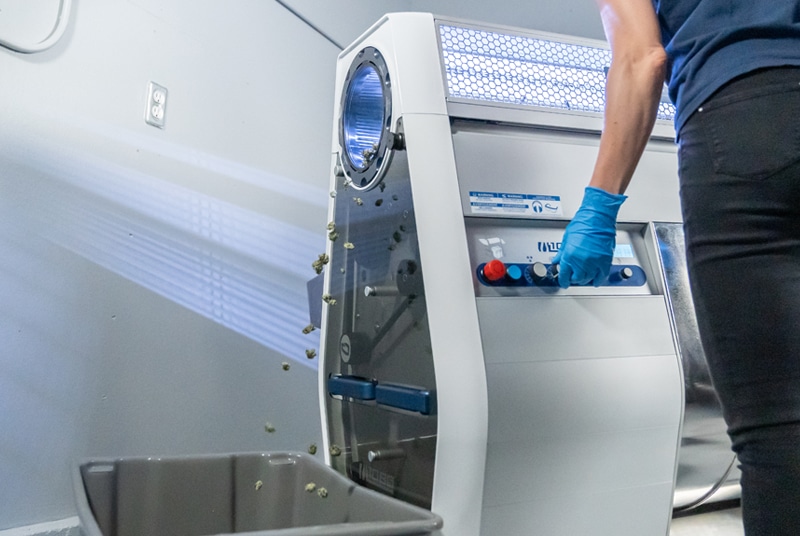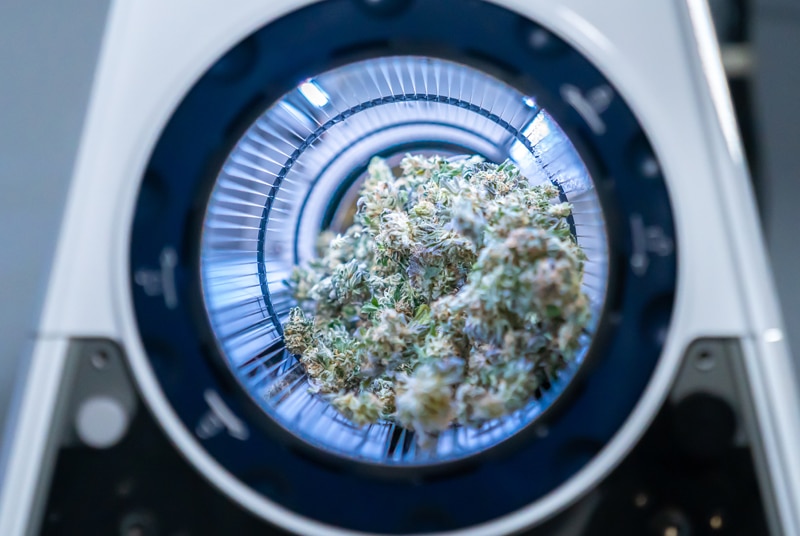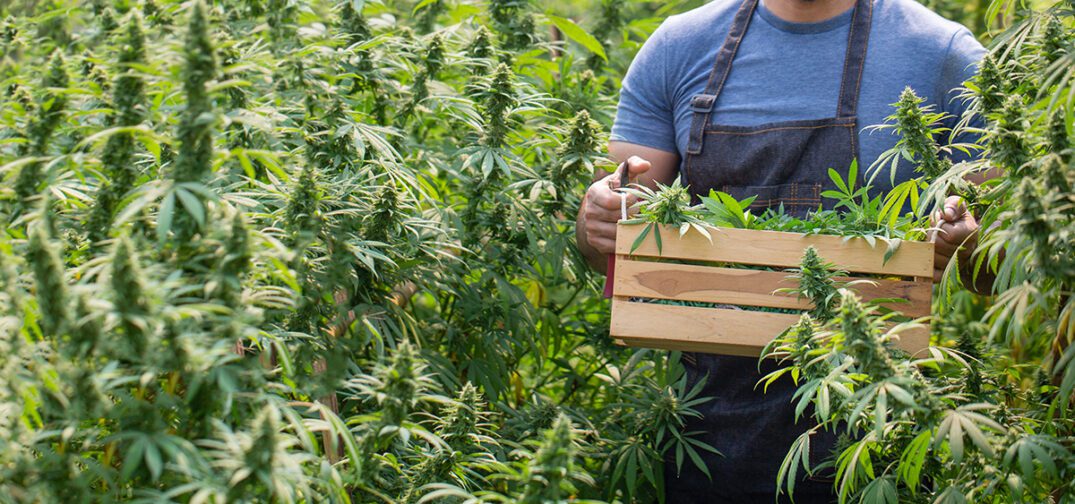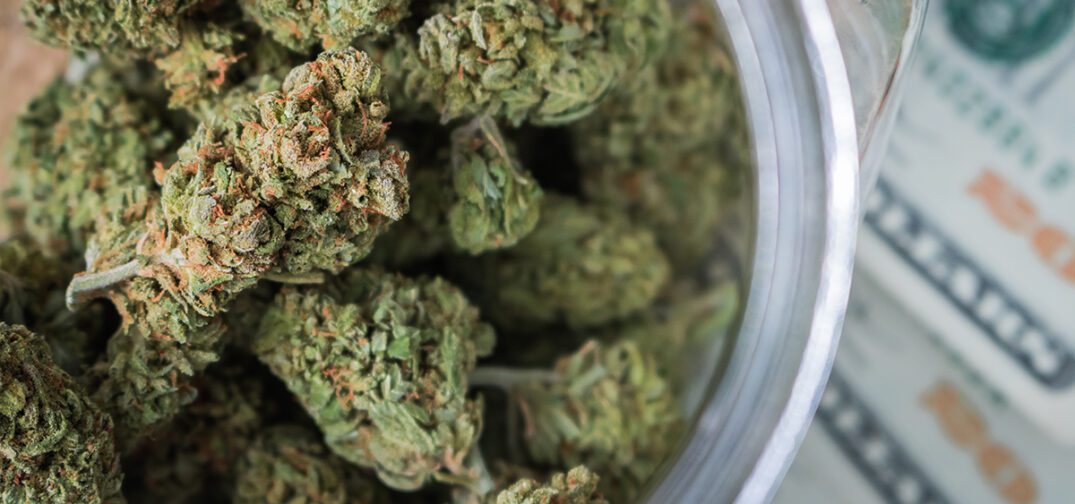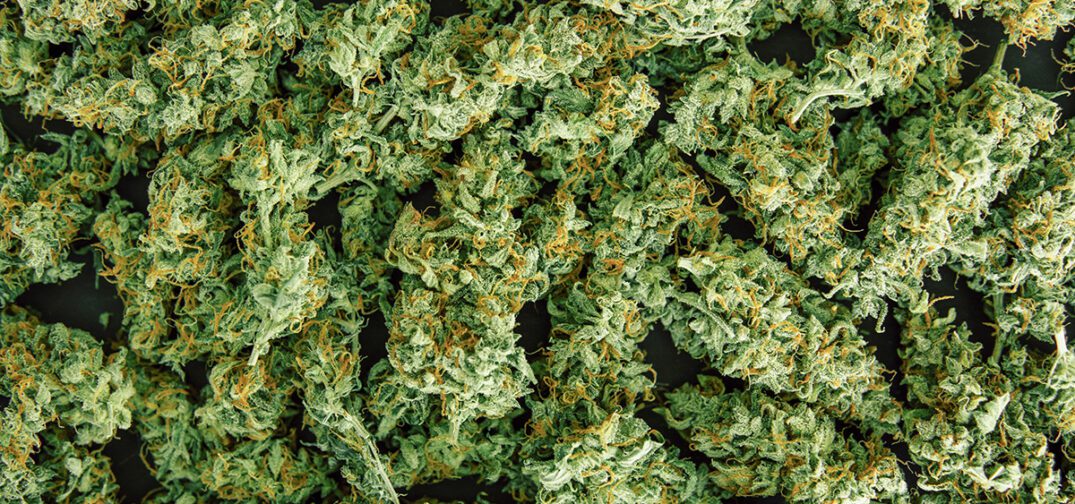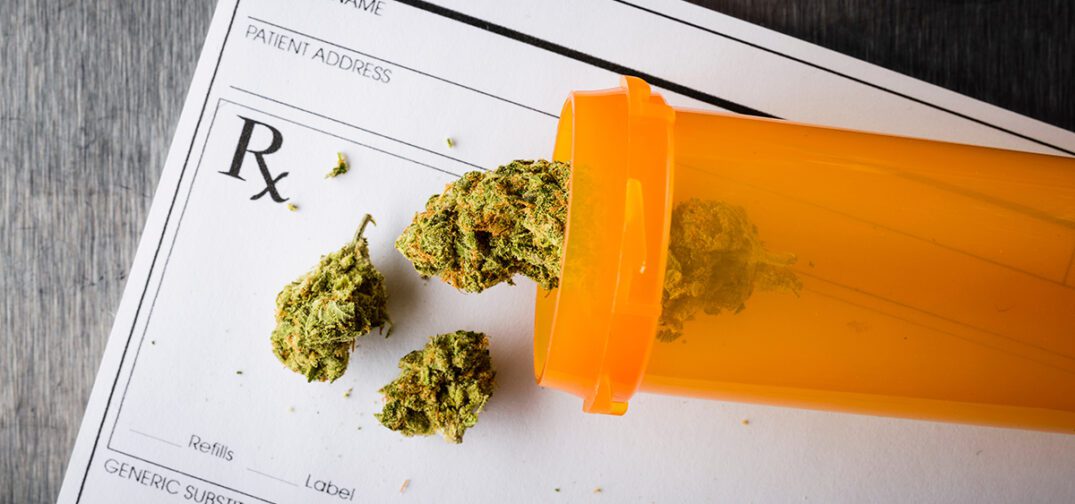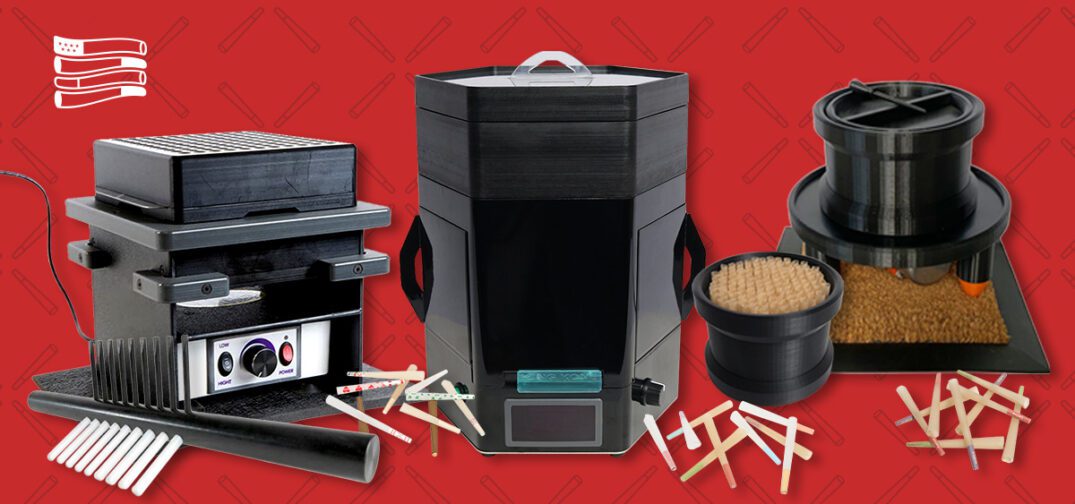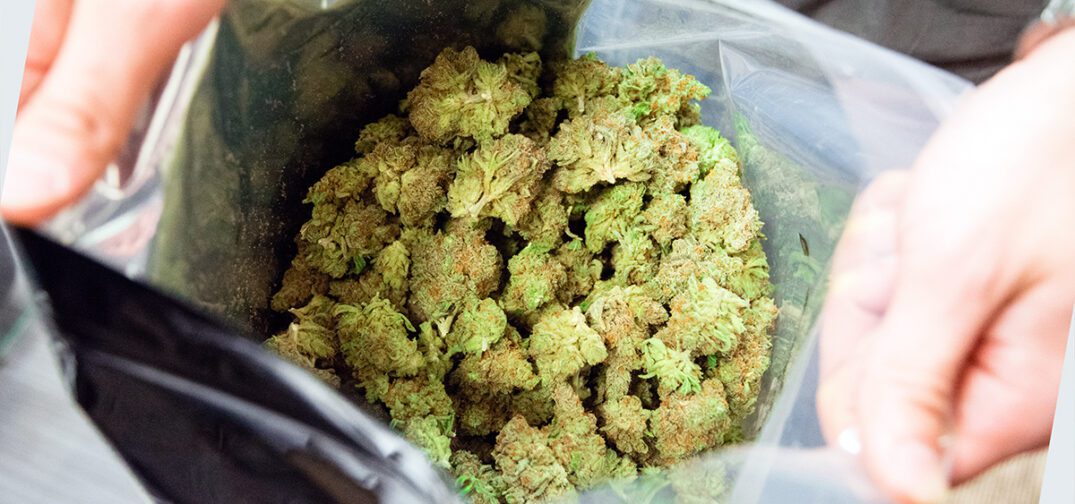Pre-rolls are the fastest-growing products in the cannabis market, but they weren’t always such a popular choice. Early on, pre-rolls had a reputation for being low-quality products, and it was a well-earned reputation. It’s hard to replicate and scale the care that goes into making a quality joint, so pre-rolls quickly became a place for flower producers to dump their shake and trim.
One of the biggest reasons pre-rolls have seen such incredible growth is because of advancements in pre-roll production machinery. Not only have these machines sped up the process of making pre-rolls, but they have also allowed producers to increase the quality of their pre-rolls. Consumers now have access to better pre-rolls at a better price point. It’s easy to see why pre-rolls are the fastest-growing product in the cannabis industry!
What Pre-Rolls Are You Making?
There’s a lot to consider when launching a new pre-roll line, and the machine you choose is right up there as one of the most important decisions you’ll make. The perfect machine for your pre-roll project isn’t going to be for everyone. You need a machine that is going to meet your specific needs.
The first thing to consider is what kind of pre-roll you want to make. Are you planning on making an entire line of pre-rolls that will come in a variety of sizes, or is your plan to focus on producing one size? Some machines are better at making one type of pre-roll whereas other machines are more versatile for making multiple sizes.

One of the most versatile machines on the market is the King Kone. Right out of the box, you are going to have the ability to make full-gram, half-gram, and quarter-gram pre-rolls, and, with an attachment, you can even make tube-style pre-rolls. The Futurola Knockbox machines are similar in their ability to create multiple types of pre-rolls out of the box. The biggest difference between the King Kone and the Knockbox being that the holes in the King Kone cartridges are tapered to fully cradle the cones. This means more flower ends up in the cone. Additionally, the filling cartridge in the Knockbox is made of glass and tends to break easily, compared to the durable polycarbonate plastic trays in the King Kone.
The Fill and Fold Machine isn’t as versatile out of the box, as it only comes with one cartridge size (different sizes can be purchased separately); however, if you are only planning on making one size of pre-rolls, The Fill and Fold is going to be your best option. All the machines are similar in how they fill empty cones, but the Fill and Fold machine’s tamping tool will also close the pre-rolls. In other words, instead of spending the time folding and closing each pre-roll individually, you can close entire rows at a time before you eject them out of the machine.
How Many Pre-Rolls Do You Need to Produce?
You may think the more cones a machine can hold, the faster you are going to be able to produce pre-rolls, but this is not always the case. You have to take into consideration the entire production line. For example, if you can only finish 600 pre-rolls an hour, it doesn’t matter that you can fill 10,000 in the same amount of time. You will only be as fast as the slowest point of your production line.
So, instead of buying the biggest machine, it is often better to buy extra cartridges and/or multiple smaller machines. Extra cartridges have the benefit of not overwhelming the production line, and multiple machines means that your production won’t stop if one machine needs maintenance or cleaning.
There does come a point where it makes sense to invest in a bigger machine. If you find yourself needing to produce more than 50,000 pre-rolls a month, it starts to make financial sense to bring in an automated pre-roll machine. You can automate everything on the production line, and, since these machines are modular in design, you can expand your automation capacities from one machine to many over time.
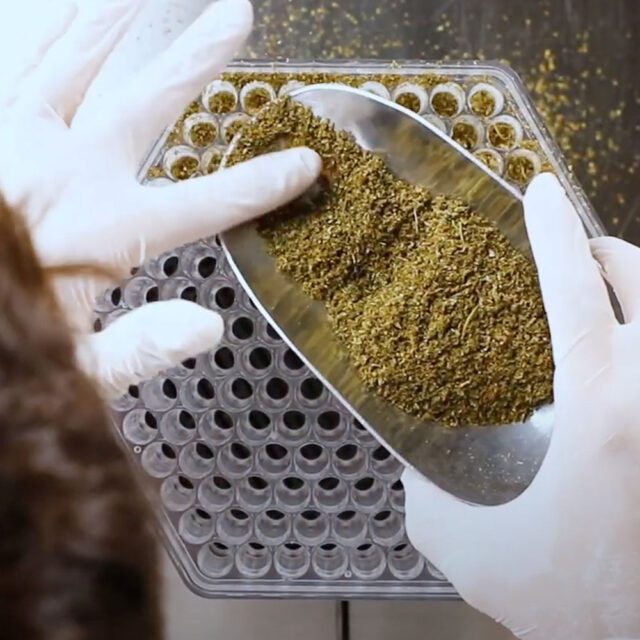
Pre-Roll Machine Functionality
A pre-roll needs to be packed well if it is going to burn properly. If it is packed too loose, then it burns fast and harsh. If it is packed too tight, you get weak pulls, and it won’t stay lit. Most pre-roll filling machines use vibration to pack the pre-rolls—the more premium models offering a more powerful motor to ensure a solid pack.
The King Kone distinguishes itself by having a motor that moves the platform underneath the pre-rolls up and down to simulate a packing motion. The King Kone also distinguishes itself from other models by having a tray that catches the flower that bounces out during packing. What this means is that you will spend less time cleaning up your production line and lose less cannabis material in the process.
On the other hand, both the Fill & Fold and Knockbox use vibration to fill and pack the cones. The vibration on the Fill & Fold is very strong and creates a nice, dense pack. The vibrating motor on the Fill & Fold is so strong, you can actually bounce the cones out of the machine, so you are instructed not to turn it all the way up! The Knockbox uses a subwoofer type system to bounce the platform, which is rather weak and may lead to soft spots and floppy ends near the filter tips.
A feature that you can expect to find on all premium models (King Kone, Futurola, Fill and Fold) is the ability to control the speed at which the machine packs. This will allow you to adjust how hard your machine packs based on the flower you are using. For example, if you have some flower that is extra sticky, you can easily increase the packing power to make sure your pre-rolls burn appropriately. The King Kone and Fill & Fold have a variable dial, whereas the Knockbox has 3 speed settings.
Pre-Roll Machine Add-Ons
A pre-roll filling machine with great add-ons will not only increase your ability to produce different types of pre-rolls, but they will also increase your efficiency. For example, a metering tray is an add-on that will help you be more precise with your filling. This cuts down on waste and saves time in the finishing process, as you will have fewer mistakes when verifying the weight of the pre-rolls before they get packaged for sale.
Tampering tools are also a great add-on that will ensure a solid smoking experience of your pre-roll. Fill and Fold machines stand out in this section, as they come with a tamping tool that will not only tamper the pre-rolls, but it will also close the pre-rolls — saving you time further down the production line. A tamping tool can be purchased separately for the King Kone machine, which is placed on top of the machine while packaging and helps tamp down the tops of all the pre-rolls.

The King Kone stands apart from other machines for its ability to create multiple-sized cones right out of the box. All other machines require additional cartridges (sold separately) to make different types of cones. Only the King Kone and Futurola machines can make pre-rolled tubes, but both require a separate cartridge that is purchased separately.
Pre-Roll Machine Durability
Before you pick a machine, consider the quality of the model, how long you plan on using it, and if you are planning on scaling up with that machine. You don’t want to be in a position where you have to invest in completely different machines down the line because you didn’t invest in the right one up front.
Made from stainless steel and polycarbonate, you can’t go wrong with the King Kone. As well as being the most versatile, it is also the most durable! The Fill and Fold is also quite sturdy, as it is made from a high-density food grade plastic. The Futurola and Fast Fill models are made from plastic and are less durable. Each model comes with a limited manufacturer’s warranty.
Price of the Pre-Roll Machines
The price of a pre-roll filling machine is going to be anywhere between $450 for a non-electronic cone filling machine and $250,000+ for an automated pre-roll machine. That’s a huge range, so your decision is going to be dependent on what types of pre-rolls you are making and the scale of your production; however, regardless of the specifics of your pre-roll project and the machine you decide to use, it’s better to invest in multiple small machines before you invest in one large machine.
This ensures that production will not stop if one machine goes down for maintenance or cleaning, but it also gives you the ability to make different types of pre-rolls simultaneously. Each machine is limited to making one type of pre-roll at a time. If you want to make a different type, you have to stop production and reconfigure the machine. This can be a long process that can eat into your production margins.
The big takeaway here is that you have to consider the price of the machine as well as the price of production. Some machines will cost more upfront, but they save you money by speeding things up. The right machine for you is going to keep your entire production line streamlined.
Manual Cone Filling Machines vs Automation
If you plan on making more than 50,000 pre-rolls a month, you should start considering automated machinery for pre-roll production. Whereas nothing will come close to the number of pre-rolls they produce, there are other limitations associated with these machines.
Firstly, for the machine to run smoothly, you need to prepare the flower in a certain way. Whereas other machines can use the stickiest bud and a range of grind sizes, an automated machine needs the flower to be less sticky and have a consistent, finer grind. Sticky buds can easily gunk up these machines. This can cause unscheduled delays in production. An even grind also ensures that pre-rolls can be finished consistently.
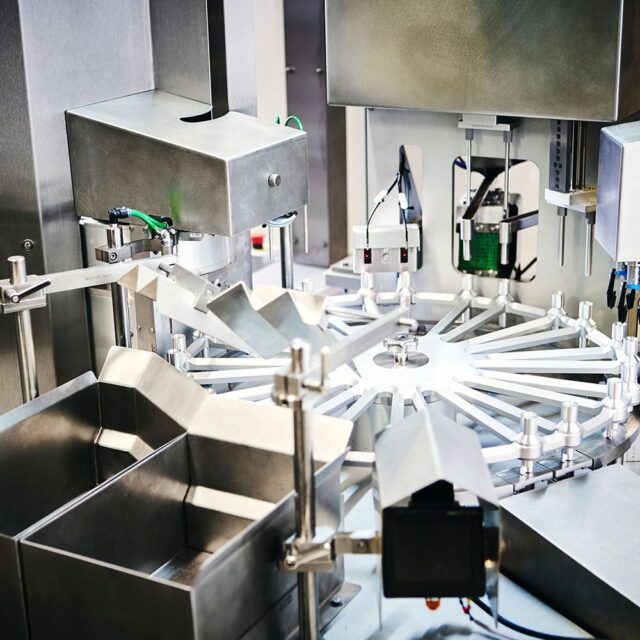
Because of the demands on the flower, it almost becomes necessary to invest in an Industrial Grinder and Sifter — another upfront cost that is not included with the filling machine. Of course, many people have one of these grinders and sifters before they invest in an automated pre-roll filling machine, as they are very useful for optimizing production regardless of the machine being used.
Another downside to automated machinery is that there is a long downtime associated with adjusting the machine and/or cleaning it. So, if you wanted to make different types of pre-rolls and only have one machine, you will waste a lot of time getting the machine ready for each type. Also, most automated machines limit you to a standard empty cone. You won’t be able to use blunt wraps or cones with premium filter tips (glass, ceramic, etc).
Lastly, you don’t want just anyone running your automated machinery. Whereas the other models can be learned quickly and can be picked up by a new hire, the automated machinery requires someone with training and, if possible, experience. This means you’ll be paying this person more. This cannot be a high-turnover position.
Customer Service
Every pre-roll project is unique, so there isn’t a one-size-fits-all answer for picking the right pre-roll filling machine. The right machine for you is going to depend on your current production goals as well as how you see those goals expanding in the future.
As a provider of custom pre-roll equipment and supplies, we at Custom Cones USA have hands-on experience with every aspect of the pre-roll industry. If you have questions about pre-roll production or need help finding the best equipment, the Pre-Roll Experts at Custom Cones USA have the answers you need to bring your pre-roll project to life!
